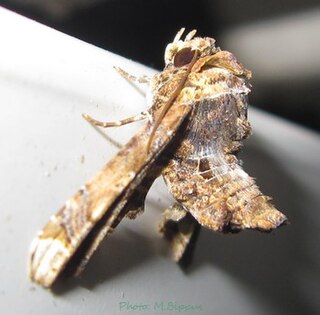Sir George Francis Hampson, 10th Baronet was an English entomologist.

Bucculatricidae or (Bucculatrigidae) is a family of moths. This small family has representatives in all parts of the world. Some authors place the group as a subfamily of the family Lyonetiidae.

Urodidae, whose species are commonly known as false burnet moths, is a family of moths in the lepidopteran order. It is the type genus in the superfamily, Urodoidea, with three genera, one of which, Wockia, occurs in Europe.
Metachanda is the sole genus in tribe Metachandini of moth subfamily Oecophorinae. Metachandini was originally described as family Metachandidae by Edward Meyrick in 1911, and at the time also contained the genus Chanystis, which is currently unplaced to tribe within Oecophorinae. It has also previously been described as tribe Metachandini of subfamily Gelechiinae.
Agathiphaga is a genus of moths, known as kauri moths. It is the only living in the family Agathiphagidae. This caddisfly-like lineage of primitive moths was first reported by Lionel Jack Dumbleton in 1952, as a new genus of Micropterigidae.

Sematurinae is a subfamily of moths in the family Sematuridae represented by at least 29 species in the Neotropics.

The Thyatirinae, or false owlet moths, are a subfamily of the moth family Drepanidae with about 200 species described. Until recently, most classifications treated this group as a separate family called Thyatiridae.

Diphtherinae is a monotypic subfamily of moths in the family Nolidae erected by Michael Fibiger and J. Donald Lafontaine in 2005. Its only genus, Diphthera, was erected by Jacob Hübner in 1809. The genus was moved from Noctuidae in 2013 after the phylogenetic analysis of Reza Zahiri et al. (2013).

Eutelia is a genus of moths of the family Euteliidae erected by Jacob Hübner in 1823.
Celonoptera is a monotypic moth genus in the family Geometridae. Its only species, Celonoptera mirificaria, is found in south-eastern Europe. Both the genus and species were first described by Julius Lederer in 1862.
Hypephyra is a genus of moths in the family Geometridae.
Nemeris is a genus of moths in the family Geometridae described by Rindge in 1981.

Oreta is a genus of moths belonging to the subfamily Drepaninae. The genus was erected by Francis Walker in 1855.
Hydrelia speciosa is a moth in the family Geometridae first described by Hiroshi Inoue in 1992. It is found in Nepal.
Hypocrita speciosa is a moth of the family Erebidae. It was described by Francis Walker in 1866. It is found in Colombia.

Oreta obtusa is a moth in the family Drepanidae. It was described by Francis Walker in 1855. It is found in India, China, Myanmar and Indonesia.
Oreta speciosa is a moth in the family Drepanidae. It was described by Felix Bryk in 1943. It is found in China and Myanmar.

The genus Mania comprises a group of tropical and semi-tropical New World moths in the family Sematuridae. The genus has historically been referred to as either Nothus or Sematura, but both of these names are invalid.







